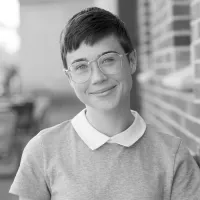New Proposal for Legal Advocates Could Help with Housing Instability in Arizona and Utah

In January, the Innovation for Justice (i4j) Program at the University of Arizona James E. Rogers College of Law published its Report to Arizona and Utah Supreme Courts: Expanding Arizona’s LP and Utah’s LLP Program to Advance Housing Stability. The report proposes expanding existing legal paraprofessional programs in Arizona and Utah to include a housing training certificate for Housing Stability Legal Advocates (HSLAs)—community members who, in the scope of their social-service work, would be able to provide limited-scope representation related to housing issues.
Housing instability is a widespread issue among lower-income community members, the majority of whom are renters. As the report outlines, over 70 percent of extremely low-income renters are paying more than half their income on rent, which means that, “for severely rent-burdened households, one emergency or unexpected expense could result in eviction, displacement, and homelessness.” Unsurprisingly, the COVID-19 pandemic has exacerbated this issue, placing many who already struggled to pay rent in a more dangerous position. Furthermore, evictions have far-reaching consequences beyond the individuals they displace, leading to increased costs across social systems. And, Black, Indigenous, and people of color; women; and families with children bear the brunt of the eviction crisis.
While legal services can make a massive difference between staying in one’s home and not (as laid out in the report, research shows tenants with legal representation experience more successful outcomes than those without), the current access-to-justice crisis means these services are few and far between. And, unauthorized practice of law (UPL) restrictions are further hindering those who could provide help, authorizing lawyers—and lawyers alone—to provide these legal services. However, states like Arizona and Utah are leading the way when it comes to regulatory reform, including approving new categories of nonlawyer licensee called legal paraprofessionals (LPs) and licensed paralegal practitioners (LPPs), respectively.
Although these two programs are already doing extraordinary work in areas such as family law, they could be expanded to do even more: address the housing-instability crisis. This is the impetus behind i4j’s recent report, which proposes the scope of services that could be provided by HSLAs, outlines a curriculum for training, and identifies how the program could be piloted and evaluated. This initiative would be the first in the country “to unite two states [i.e., Utah and Arizona] in demonstrating the cross-jurisdictional viability of non-profit, pro bono housing legal advocate services embedded in social services, and the first in the nation to adopt paraprofessional legal advice as an innovative solution to the eviction crisis.”
Through their research, i4j discovered that most community-based organizations (CBOs) interfacing with people experiencing housing instability weren’t familiar with Arizona and Utah’s paraprofessional programs, and that, when informed about the current training and licensure requirements in their states, prospective HSLAs felt they were too onerous. Despite this, “CBOs serving tenants were interested in learning about housing law to help the tenants they already interface with. They wanted the scope of the training to be tailored to meet their clients’ needs, both legal and nonlegal.”
Not only do advocates want to help, but tenants want their assistance—and, in fact, they “prefer assistance from trusted, nonlawyer, community-based advocates.” Their reasons include not wanting to navigate the legal system alone, feeling more comfortable working with someone seen as part of the community, and holding a negative view of the legal system.
A key part of i4j’s proposed model is that it lowers the barriers to entry into this new profession, making training and licensure requirements for HSLAs practical rather than burdensome. The proposed scope of services includes the following:
- Issue-spotting for housing instability at intake: HSLAs could utilize legal training and knowledge alongside their existing social-service knowledge to work with assist people experiencing housing instability—before their housing problem becomes a civil legal problem.
- Helping tenants problem-solve before a housing issue goes to court: HSLAs could be trained to understand the issues tenants commonly experience before eviction and strategies to overcome those, as well as learn to screen for legal defenses and take an advocacy role in negotiating with property owners and managers on tenants’ behalf.
- Giving tenants legal advice regarding engaging with the legal system: HSLAs could advise people faced with losing their home on the eviction process, timeline, how to complete forms, and the potential value of participating in their case. They could also screen for viable legal
- Assisting tenants after an eviction: HSLAs could assist tenants with post-judgement procedures, help them reduce damages, and guide them through next steps (such as finding and applying for assistance programs).
The curriculum for this innovative program, outlined in the appendix of the report, was designed with input from both people experiencing housing instability as well as other stakeholders, to ensure “a holistic approach to curriculum development, in which multiple system perspectives beyond traditional legal system functions play a role in determining curriculum content.” Should this program take off, i4j has also included ideas as to how it could be evaluated and ultimately inform similar future programs.
“We can protect our most vulnerable populations from the devastating consequences of eviction, displacement, and homelessness, by re-imagining the capacity of the social service sector to deliver legal advice upstream, before a socio-economic housing problem goes to court.”
In order to launch this initiative, i4j will work with the supreme courts in both states to further develop curriculum and licensing requirements, while aligning the needs of the courts with those of CBOs.
As programs like this take off across the country, we’re just beginning to receive valuable data on the efficacy of these programs—data which to date has included a lack of actual harm to consumers, as well as the ways these providers are making a real difference when it comes to providing access to affordable legal services. To contribute to the development of this new ecosystem, IAALS’ newly launched Allied Legal Professionals project aims to help standardize formal legal professional programs nationally, in order to expand the options for accessible and affordable legal help for the public. Although the need is great, allied legal professionals and providers such as HSLAs can work alongside lawyers to help meet it.

